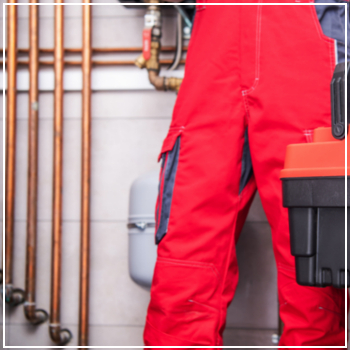Comparing Furnaces, Heat Pumps & Boilers
 When temperatures plunge during late fall and winter, we aim to keep our houses warm. Yet all methods are not identical, in terms of operation and energy consumption. Furnaces and boilers are two common options, as well as heat pumps. To learn more about your existing system or understand the differences while shopping around, here’s what you should know.
When temperatures plunge during late fall and winter, we aim to keep our houses warm. Yet all methods are not identical, in terms of operation and energy consumption. Furnaces and boilers are two common options, as well as heat pumps. To learn more about your existing system or understand the differences while shopping around, here’s what you should know.
What Is a Furnace?
Furnaces use a forced air mechanism that’s fueled by gas or oil, as well as propane, electricity, solar power or a geothermal mechanism. Systems activate with a pilot light or ignition switch. When you turn up the thermostat, this action starts the burners or electric coils and activates the heat exchanger.
At this point, the furnace’s blower forces warm air into the ducts traveling through your home. Once you feel warmth, all the cool air in that space gets forced into the air return, where it travels back to the furnace to be reheated.
Many people get confused between a furnace and a water heater. As one general difference, water heaters are not designed to regulate home temperature but rather the water flowing through it. In this case, water travels into the heater’s tank. Natural gas, propane or an electric mechanism heats the water before it flows back into your plumbing system to be used by the shower, sinks and appliances.
What Is a Heat Pump?
While a heat pump sounds similar to a furnace, its components and operation vary significantly. As the primary differentiating factor, these systems take the heat from outside air and add pressure, using a combination of electricity and refrigeration technology.
As this occurs, the refrigerant in the system is transformed into a hot gas that passes over coils into a condenser. Once heat enters the space, the gas substance cools, returns to its liquid state and system pressure is released. Similar to a furnace, this process is circular to heat a room.
Heat pumps tend to be part of central heating and cooling systems. Unlike a furnace, the heat pump also functions as an air conditioner during the warmer months. This arrangement results in a more energy-efficient and space-conscious solution that lowers your heating and cooling costs over time.
What Is a Boiler?
Boilers use water to circulate heat throughout the home. Gas, electricity or oil heats the system up, then a heat exchanger warms the water. It then travels through a series of pipes to a radiator or below your floor, heating the room in the process.
Boilers use what’s known as a closed system. After the water has traveled through your home, it returns to the boiler, where it’s reheated to be recirculated. Considering this design, boilers may double as hot water heaters in some homes. Although boiler installation can be extensive, it can be more economical for long term energy savings.
Our HVAC technicians can address any issues with your home’s boiler, water heater, heat pump or furnace. To request service, contact MJ Fahy & Sons today.




